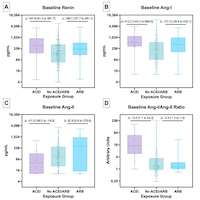Miles Sibley: We need to change the hierarchy of evidence-based medicine
blogs.bmj.com
In July 2020, the Independent Medicines and Medical Devices Safety Review published a report entitled “First Do No Harm”. Also known as the Cumberlege Review, the report set out extensive evidence of avoidable harm in healthcare. It described “heart wrenching stories of acute suffering, families fractured, children harmed”. The suffering had occurred over years, even decades.
The harm was avoidable because patients and families had repeatedly spoken out about the ill effects of the treatments they had received. But no one had wanted to hear them.
In a letter to the Secretary of State of Health and Social Care, Baroness Cumberlege (chair of the review) said, “The healthcare system… does not adequately recognise that patients are its raison d’etre. It has failed to listen to their concerns and has too often moved glacially”.
The words “healthcare system” are important. The NHS is full of dedicated staff who, at a one-to-one level with patients, offer deeply personal and compassionate care. But too often the system as a whole seems institutionally deaf to the patient voice.
Taking Cumberlege as its starting point, The Patient Library’s latest report, Inadmissible Evidence reveals a double standard in evidence-based medicine. Medical evidence is respected, and built into professional training and practice. Evidence based on patients’ experience, described as “anecdotal” or “soft” evidence, is all too often ignored.
It was ignored at the Mid Staffordshire NHS Foundation Trust, where, in the words of Sir Robert Francis, the Board “did not listen sufficiently to its patients”.
It was ignored at Morecambe Bay, where patients’ concerns about harms in maternity services simply disappeared within “a pattern of failure to recognise…the problem, with, in some cases, denial that any problem existed”. The same kind of pattern occurred at Southern Health,6 and at Gosport, and in the Northern Ireland hyponatraemia scandal and at Cwm Taf. It seems likely that ongoing investigations at Shrewsbury & Telford10 and East Kent will reach the same basic conclusion: that when things go badly wrong patient experience evidence is deemed inadmissible.
Over and over again, our evidence-based healthcare system has not wanted to accept patient feedback as evidence. And so, over and over again, patients have been harmed—unnecessarily, and in large numbers.



















